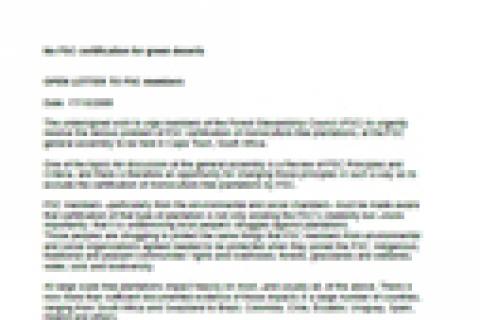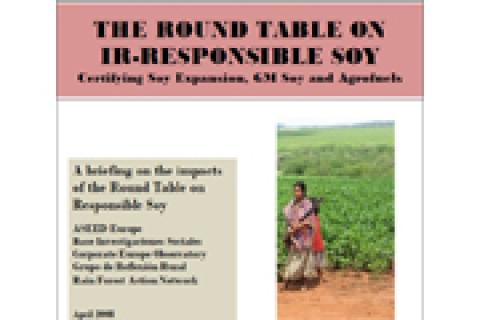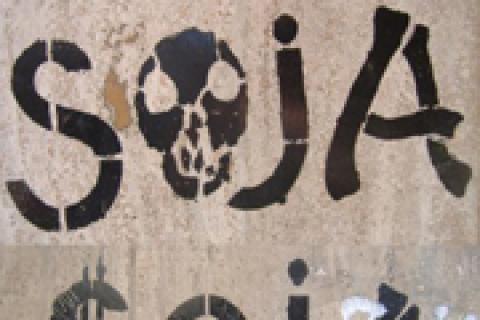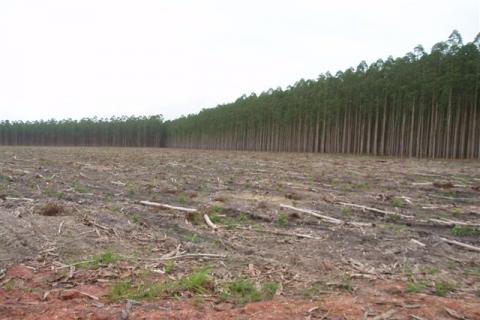By the WRM
The CBD recognized in 1992 the “vital role of women in the conservation and sustainable use of biological diversity” and affirmed “the need for the full participation of women at all levels of policy-making and implementation for biological diversity conservation” (Preamble; paragraph 13).
In spite of that, women have remained as invisible as ever within the deliberations of the CBD’s conferences of the parties.
Other information
Certifying Soy Expansion, GM Soy and Agrofuels
ASEED Europe, Base Investigaciones Sociales, Corporate Europe Observatory, Grupo de Reflexión Rural, Rain Forest Action Network - April 2008
The Constituent Assembly formed to discuss and draft a new Ecuadorian Constitution resolved on 14 March 2008 to grant an amnesty to 357 human rights activists who had been “criminalized for their protest and resistance actions in defence of their communities and the environment,” according to an official press release. Most of the 357 are community and peasant leaders, some of them indigenous, from communities throughout the country.
Ghana: Norwegian biofuel company destroyed local forest to establish a large jatropha (1) plantation
Agriculture in Northern Ghana accounts for more than 90% of household incomes and employs more that 70% of the population in the region. Most of the agricultural production is by small-holders at subsistence level, reliant on seasonal rainfall which is unpredictable and sporadic. During the dry season much of the population is idle, forcing people to migrate to the more prosperous southern parts of the country where they are employed in menial jobs.
A recent study published by WWF (1) analyzes deforestation and forest degradation in Riau Province between 1982 and 2007 and identifies their main drivers: pulpwood and oil palm industrial plantations.
The study shows that the fastest rate of deforestation in Indonesia is occurring in central Sumatra's Riau province, which used to have 78% of its land covered by forest. In the past 25 years, some 4.2m hectares (65%) of its tropical forests and peat swamps have been cleared for industrial plantations.
Alan Garcia’s government is promoting a bill (draft law 840) also known as the “Forest Law.” It is a law concerning the promotion of private investment in reforestation and agro-forestry, whereby land with no forest cover in the Peruvian Amazon – erroneously classed as deforested wastelands, meaning there are no acquired rights over them – could be allocated, not as concessions, but as private property. This would open the door to major capital to establish large-scale tree plantations, under the guise of “reforestation.”
The world is undergoing an acute food crisis with soaring prices for basic food and desperate food-related riots that threaten political stability in many Third World countries. By the end of March, prices of rice and wheat were about double their levels a year earlier, and maize prices were over a third higher. According to FAO, the import bill for cereals for the world’s poorest countries will rise by 56% in 2007/08, after a 37% increase in 2006/07.
Press Release - 17 April 2008, International Day of Peasant's Struggle.
Asunción, Paraguay
FSC announced that its Accreditation Services (ASI) would be "conducting a Forest [sic] Management surveillance audit of SGS at Veracel in Brazil between the 26th-28th of March 2008". Within the framework of the evaulation process, the Social Environmental Forum of the Extreme South of Bahia was invited to take part in the Evaluation process, below their answer:
To Mr. André de Freitas,
Cc.: FSC-Brasil/FSC-Internacional
In a country already suffering severe economic hardship and repression under its military rulers, thousands of people mainly in rural areas face losing their homes and lands to seven large dam projects planned for the Irrawaddy (Ayeyarwaddy) River Basin in Northern Burma’s Kachin State.
The dam projects are being built under a joint agreement between the Burma’s military regime and the China Power Investment Corporation (CPI).
The Pampas of Argentina and Uruguay is one of the largest uncultivated grasslands in the world. Grasses have dominated the Pampas for at least three thousand years. Starting in the 19th Century eucalyptus trees were planted on small areas, for shade on cattle ranches and for construction materials. Today, the pulp and paper industry and the carbon offsets industry are expanding their operations in South America. Increasingly, they are targeting grasslands for conversion to large-scale industrial tree plantations.





